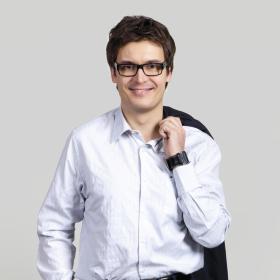MEDFAKE: Building Trust in Vaccination using the technically advanced communication tools and social impact methods

MEDFAKE: Building Trust in Vaccination using the technically advanced communication tools and social impact methods

Project goal
The main goal of the project is to increase confidence in immunization in Poland by developing tools to encourage patients / adolescents to reject false medical claims regarding vaccination (medical fake news). The project will examine the decision-making mechanisms and adjust the final shape of the tools to target groups in order to respond to their needs and achieve the expected result, which is a decrease in the number of refusals to vaccinate.
Tasks and results
The project will develop, based on psychosocial mechanisms based on the techniques of persuasion and social influence, coherent strategies for:
• medical staff
• teachers
• parents
• young adolescents
A model of the organization of primary healthcare will be created in the implementation of the immunization program and models of cooperation with local governments, NGOs, public institutions, as well as proposals of the legislative changes and legal acts. Due to the fact that the spread of fake news in the field of vaccination may lead to the adoption of incorrect attitudes and health behaviors by rejecting medical knowledge, one of the results of the project will be the development of an innovative tool allowing the identification and inhibition of the spread of medical fake news at an early stage of their formation. It is assumed that educational and promotional activities will include the use of adapted communication tools and channels, such as: social media, webinars, Q&A, podcasts, stationary and online meetings, live chats.
W związku z realizacją projektu „Budowanie zaufania do szczepień ochronnych z wykorzystaniem najnowszych narzędzi komunikacji i wpływu społecznego”, realizowanego w terminie 01.01.2021 – 31.05.2024, na podstawie Umowy o wykonanie i finansowanie projektu Gospostrateg-II/0007/2020-00 z dn. 30 grudnia 2020 r. i finansowanego ze środków Narodowego Centrum Badań i Rozwoju, Zamawiający - Akademia Leona Koźmińskiego zaprasza do złożenia oferty na zamówienie sprzętu wraz z jego dostawą, montażem oraz konfiguracją w siedzibie Zamawiającego.
Zapytanie Ofertowe nr 1/2024/MEDFAKE
Załączniki do Zapytania: - Wykaz zrealizowanych dostaw – Załącznik nr 1 do Zapytania ofertowego nr 1/2024/MEDFAKE - Oświadczenie o braku powiązań – Załącznik nr 2 do Zapytania ofertowego nr 1/2024/MEDFAKE - Formularz ofertowy – Załącznik nr 3 do Zapytania ofertowego nr 1/2024/MEDFAKE
ZO nr 1/2024/MEDFAKE INFORMACJA O WYBORZE NAJKORZYSTNIEJSZEJ OFERTY

Full Professor and head of Management in Networked and Digital Environments (MINDS) department, Kozminski University, and faculty associate at Berkman-Klein Center for Internet and Society, Harvard University. He is a corresponding member of the Polish Academy of Sciences. His recent books include “Collaborative Society” (2020, MIT Press, with A. Przegalinska), “Thick Big Data” (2020, Oxford University Press), “Common Knowledge?: An Ethnography of Wikipedia” (2014, Stanford University Press). His current research projects include climate change denialism online, anti-vaxxer internet communities, and bot detection. He serves on the Wikimedia Foundation Board of Trustees.
Recent publications:
Jemielniak, Dariusz (2012) The New Knowledge Workers, Cheltenham: Edward Elgar Publishing
Jemielniak, Dariusz and Kostera, Monika (2010) Narratives of irony and failure in ethnographic work, Canadian Journal of Administrative Sciences, vol. 27(4)
Hunter, Carolyn, Jemielniak, Dariusz and Postuła, Agnieszka (2010) Temporal and spatial shifts within playful work, Journal of Organizational Change Management, vol. 23, no. 1, pp. 87-102
Jemielniak, Dariusz (2009) Time as symbolic currency in knowledge work, Information and Organization, vol. 19, pp. 277-293